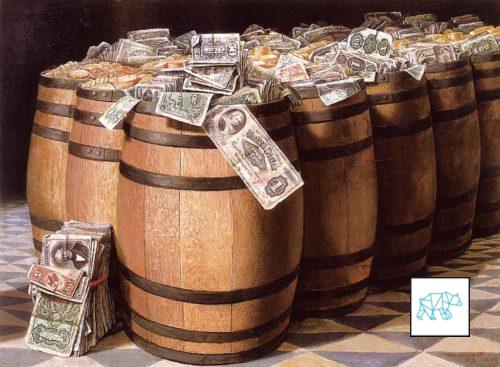
17 Aug What drives oil prices? Spot prices.
Points to take from this read
Both crude oil and petroleum product prices can be affected by events that have the potential to disrupt the flow of oil and products to market, including geopolitical and weather-related developments.
The size and duration of a potential disruption, they also consider the availability of crude stocks and the ability of other producers to offset a potential supply loss.
Weather can also play a significant role in oil supply. However, the influence of these types of factors on oil prices tends to be relatively short lived.
Disclaimer
Most of the information here comes from the U.S. Energy Information Administration’s website (EIA) and some from Wikipedia. I am not pretending to come up with all this information myself. The only thing I did was go through the information and put together pieces of it to make it easier to understand and access for myself. This, I want to share with you and I hope it benefits you in some way. All the praise goes to the good people that put this up on the EIA and Wikipedia website.
Please go over to these respective websites for a lot more information:
EIA on the balance of ‘What drives Crude Oil?’ financial markets
https://www.eia.gov/finance/markets/crudeoil/spot_prices.php
Keeping it simple
As I tried explaining in the disclaimer this post is just going to be the summarization of ‘facts’ I have found on the internet. Sort of like a cheat sheet for anything on the financial markets that are involved with crude oil. Above you can find the sources for the information listed here so head on over and look up more details if you wish.
So here it goes…
Different grades of Oil
- Crude oil is traded in a global market. Prices of the many crude oil streams produced globally tend to move closely together, although there are persistent differentials between light-weight, low-sulfur (light-sweet) grades and heavier, higher-sulfur (heavy-sour) crudes that are lower in quality.
- Both crude oil and petroleum product prices can be affected by events that have the potential to disrupt the flow of oil and products to market, including geopolitical and weather-related developments.
- These types of events may lead to actual disruptions or create uncertainty about future supply or demand, which can lead to higher volatility in prices.
- The volatility of oil prices is inherently tied to the low responsiveness or “inelasticity” of both supply and demand to price changes in the short run.
- Both oil production capacity and the equipment that use petroleum products as their main source of energy are relatively fixed in the near-term.
- It takes years to develop new supply sources or vary production, and it is very hard for consumers to switch to other fuels or increase fuel efficiency in the near- term when prices rise.
- Under such conditions, a large price change can be necessary to re-balance physical supply and demand following a shock to the system.
What are possible disruptions to oil supply?
- Much of the world’s crude oil is located in regions that have been prone historically to political upheaval, or have had their oil production disrupted due to political events.
- Several major oil price shocks have occurred at the same time as supply disruptions triggered by political events, most notably
- the Arab Oil Embargo in 1973–74,
- the Iranian revolution and
- Iran-Iraq war in the late 1970s and early 1980s,
- and Persian Gulf War in 1990.
- More recently, disruptions to supply (or curbs on potential development of resources) from political events have been seen in Nigeria, Venezuela, Iraq, Iran, and Libya.
- Several major oil price shocks have occurred at the same time as supply disruptions triggered by political events, most notably
- Given the past history of oil supply disruptions emanating from political events, market participants are always assessing the possibility of future disruptions and their potential impacts.
- In addition to the size and duration of a potential disruption, they also consider the availability of crude stocks and the ability of other producers to offset a potential supply loss.
- For example, if the market has ample spare production capacity to offset a possible disruption, its likely impact on prices would be smaller than if spare production capacity was much lower.
- When there are significant concerns about the potential for a disruption at a time when spare capacity and inventories are not seen as sufficient to substantially offset the associated loss in supply, prices may be above the level that might be expected if only current demand and supply were considered, as forward-looking behavior adds a “risk premium.”
Weather
- Weather can also play a significant role in oil supply. Hurricanes in 2005, for example, shut down oil and natural gas production as well as refineries. As a result, petroleum product prices increased sharply as supplies to the market dropped.
- Severely cold weather can strain product markets as producers attempt to supply enough of the product, such as heating oil, to consumers in a short amount of time, resulting in higher prices.
- Other events such as refinery outages or pipeline problems can restrict the flow of oil and products, driving up prices. However, the influence of these types of factors on oil prices tends to be relatively short lived. Once the problem subsides and oil and product flows return to normal, prices usually return to previous levels.
Thanks for reading
I hope this post helps to make the role of the financial markets in relation to oil prices more clear.
If you like what I’m doing here please leave a quick comment. It will be much appreciated. Trolls are still welcome as well. And subscribe to my newsletter if you like.





No Comments